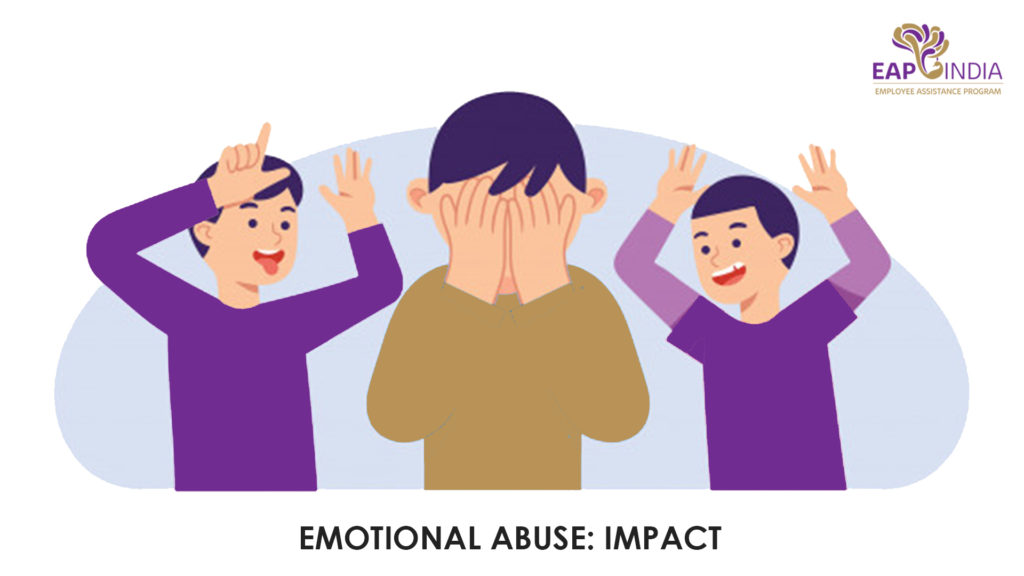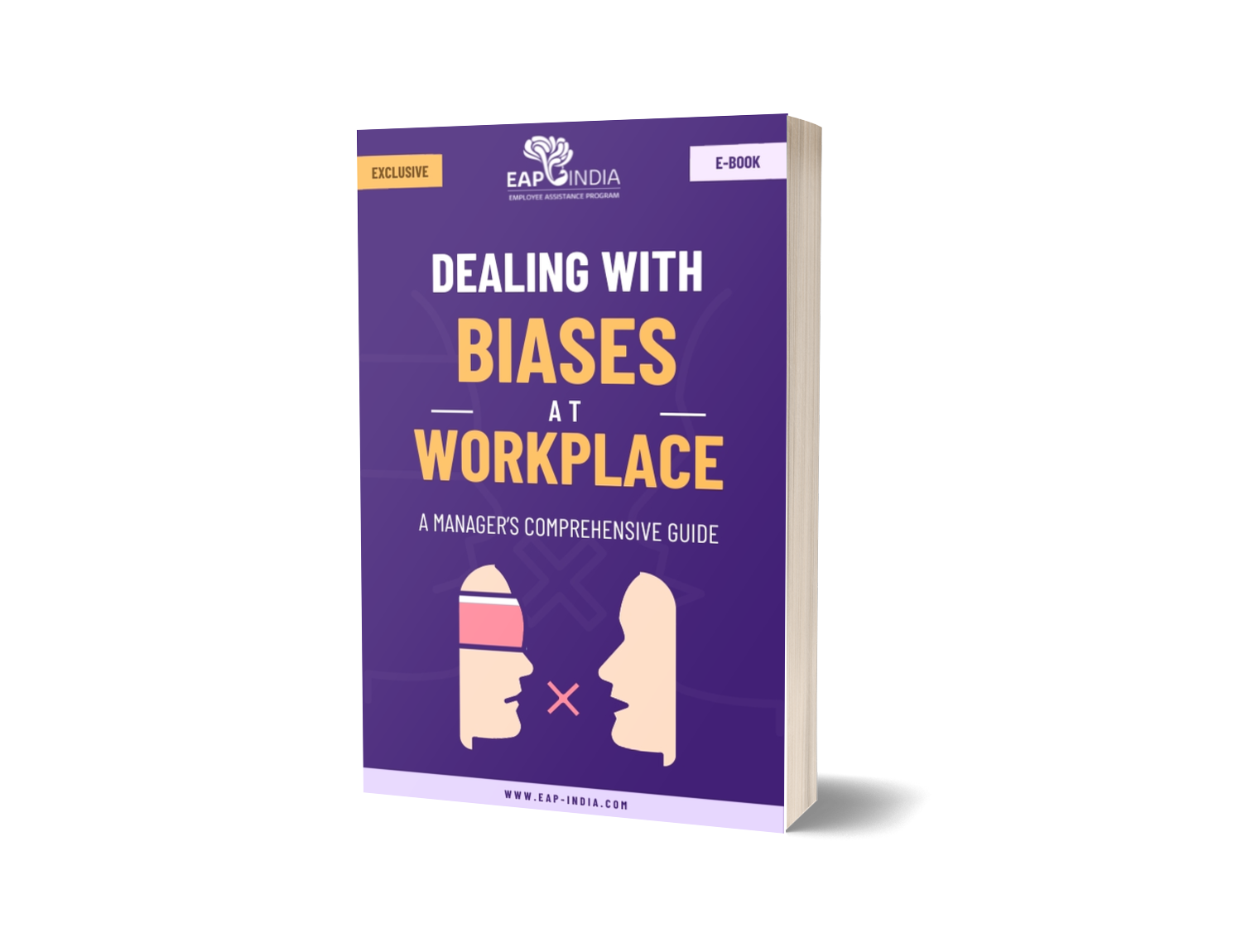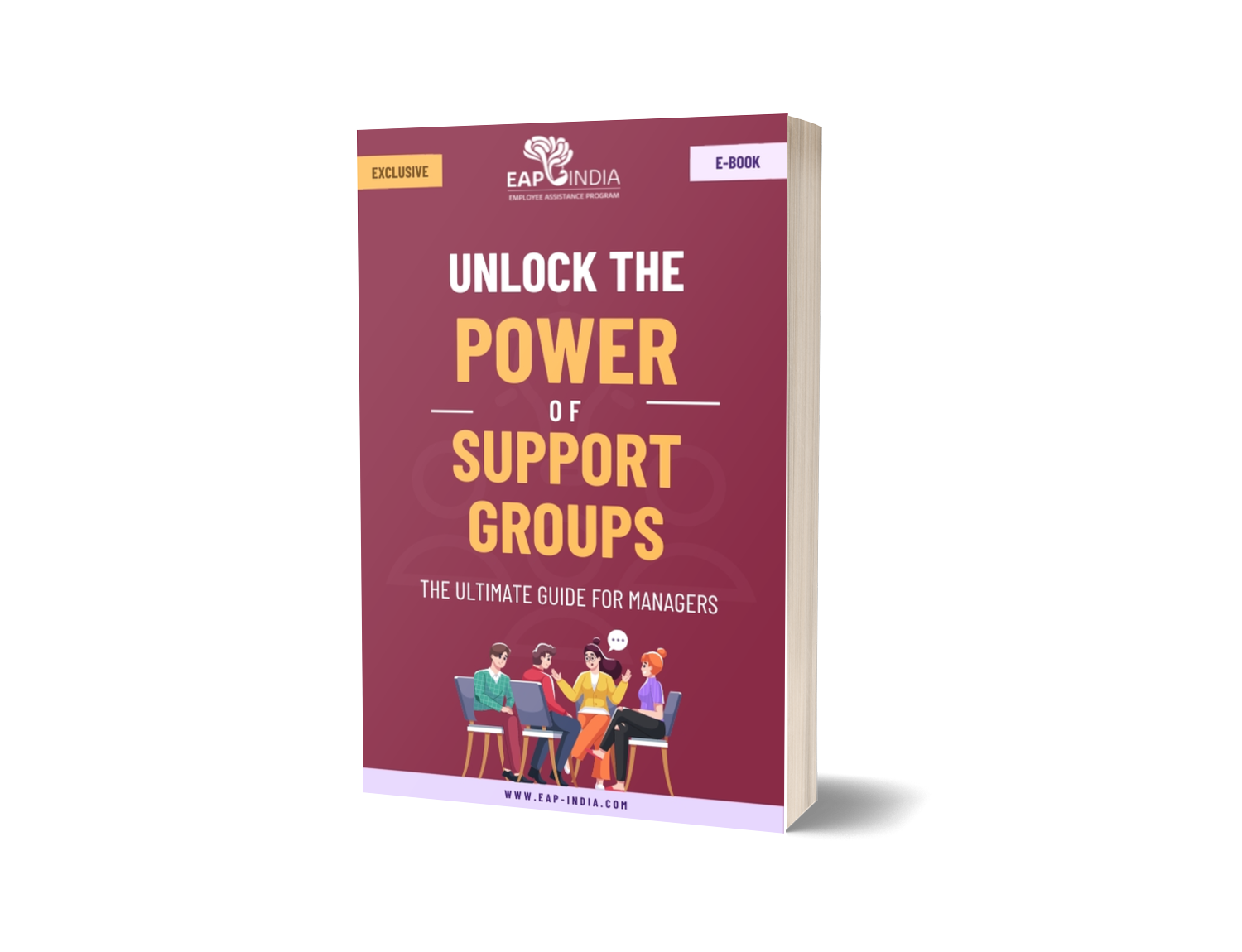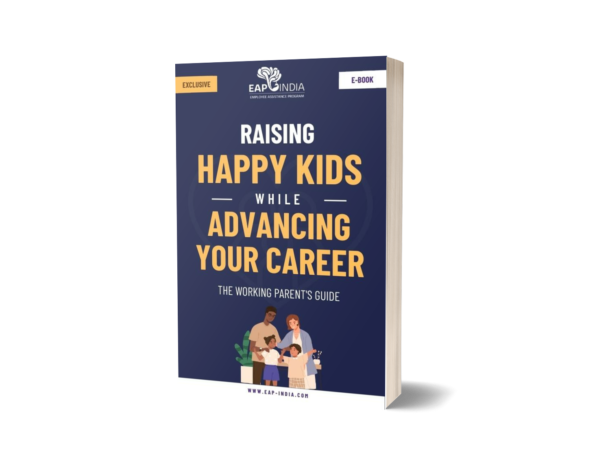Emotional Abuse is a form of abuse/violence used to control another person by using emotions to constantly criticize, embarrass, blame or manipulate the person targeted.
Emotional Abuse is said to be the most difficult form of abuse to get recognized.
Emotional Abuse has several potential sources, such as:
- Parents
- Romantic Partners
- Friends
- Work Colleagues
Types Of Emotional Abuse
- Gaslighting
- Constantly Arguing or Opposing
- Criticizing
- Shaming or Blaming
- Silent Treatment
- Withholding Affection & Attention
- Verbal Abuse
Impact of Emotional Abuse
When the abuse is severe, the person may start losing their sense of self even though the wounds may be invisible to others. Consequences of emotional abuse sometimes are far severe than physical abuse.
Emotional abuse can impact friendships because emotionally abused victims often worry about how people see them and if they truly like them. They pull back from friendships, or forming new relationships/friendships; they isolate themselves convincing themselves that no one likes them.
Emotional abuse like physical abuse impacts and can have many long-term effects on the victim’s brain and physical body. Severe and ongoing emotional abuse can contribute to various mental health illness like depression, anxiety, paranoia, insomnia and low self-esteem.
In some cases, emotional abuse can lead to Post-Traumatic Stress Disorder (PTSD) and drug abuse in the later stages of life.
The effects of emotional abuse can be painful, destructive, tormenting in short-term as well as long-term. Some also experience feelings of helplessness, shame, guilt, and self-loathing. There are times when severe emotional abuse leads to a nervous breakdown.
Nervous breakdown effects vary from person to person but the most common signs involve losing the ability to participate in social and professional activities as well as diminishing self-care activities, including changes in appetite and maintaining personal hygiene.
Impact of Emotional Abuse In The Brain
When someone is abused, their brain is constantly in the mode of survival. It gets difficult for them to not be alert even when they are not in traumatic situations.
Victims of constant emotional abuse experience shrinking in their hippocampus (area crucial for learning). Since victims of emotional abuse live in a constant state of fear and anxiety, another part of the brain that receives damage due to emotional abuse is the amygdala. The victims experience swelling in their amygdala (the area that controls heart rate and breathing). Amygdala is also referred to as emotional control center. Because of this, the victims are constantly in the state of flight or fight.
Conclusion
Emotional Abuse is like carbon-mono oxide; unable to see, but it can be deadly.
People who are abused, are constantly drained, physically and mentally. Emotional abuse is never the fault of the person experiencing it. It does have several long-term and short-term effects on the individual’s health, mental health and well-being.
It can have devastating effects on both men and women who have been victims of abuse. But some resources are always available for people who experience emotional abuse. It is okay and completely normal to seek help.







